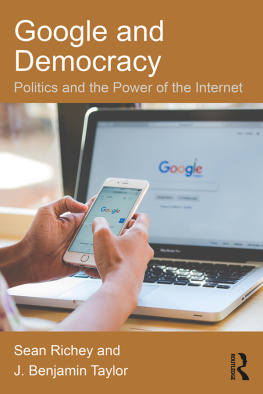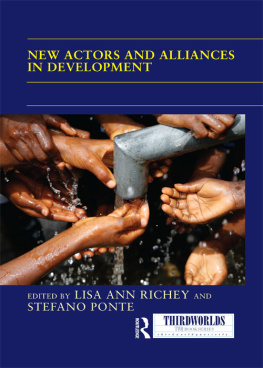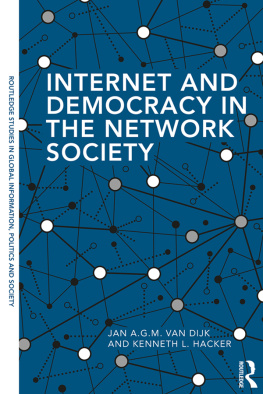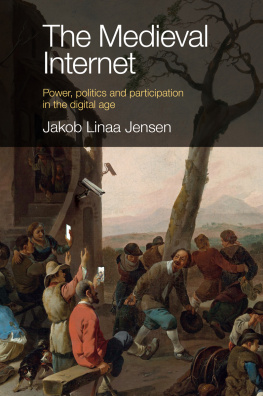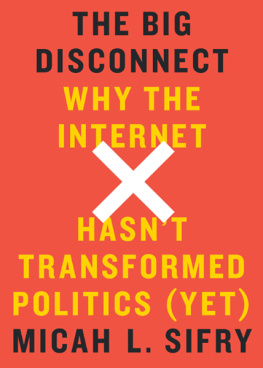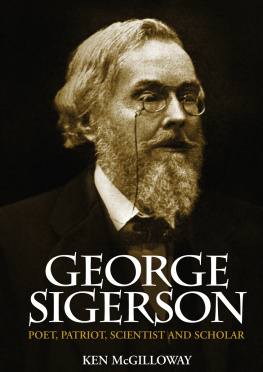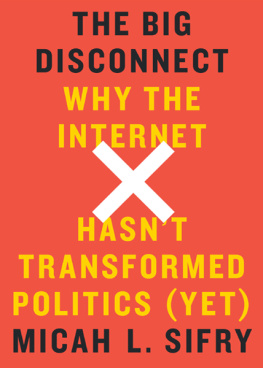Google and Democracy
For the first time in human history, access to information on almost any topic is accessible through the Internet. A powerful extraction system is needed to disseminate this knowledge, which for most users is Google. Google Search is an extremely powerful and important component to American political life in the twenty-first century, yet its influence is poorly researched or understood.
Sean Richey and J. Benjamin Taylor explore for the first time the influence of Google on American politics, specifically on direct democracy. Using original experiments and nationally representative cross-sectional data, Richey and Taylor show how Google Search returns quality information, that users click on quality information, and gain political knowledge and other contingent benefits. Additionally, they correlate Google usage with real-world voting behavior on direct democracy.
Building a theory of Google Search use for ballot measures, Google and Democracy is an original addition to the literature on the direct democracy, Internet politics, and information technology. An indispensable read to all those wishing to gain new insights on how the Internet has the power to be a normatively valuable resource for citizens.
Sean Richey is Associate Professor of Political Science at Georgia State University, U.S.A. He was a Fulbright Fellow from 20132014 at the University of Tokyo. He was a Japan Society for the Promotion of Science Post-Doctoral Fellow at the University of Tokyo between 2004 and 2006. He researches American politics with a specialization in elections, voting behavior, public opinion, and quantitative methodology. His research has appeared in two peer-reviewed books and in academic journals articles in Political Research Quarterly, the British Journal of Political Science, Political Communication, Political Behavior, International Studies Quarterly, and others.
J. Benjamin Taylor is Assistant Professor of Political Science at the University of North Carolina Wilmington, U.S.A. He researches and teaches courses on American political behavior with a focus on the effect of media on political behavior and attitudes. He has published a peer-reviewed book, Extreme Media and American Politics: In Defense of Extremity (Palgrave Macmillan, 2017) and has published articles in Political Communication, State Politics & Policy Quarterly, American Politics Research, Politics & Religion, and Presidential Studies Quarterly.
The most recent US presidential election showed that voting behavior is far more complicated than expected; this book helps us to understand the digital tools citizens use to frame their vote decision.
Sergio Picazo-Vela, Professor of Business Administration, Universidad de las Amricas Puebla
The radical change in citizens access to specific and relevant information has profound implications for democracy. Soon, we may well feel that voting without searching for information on the Internet is as irresponsible as making a major purchase without comparison shopping, or signing a binding contract without reading it. Google and Democracy makes a compelling, and reassuring, case for that future.
Richard N. Engstrom, Associate Director of the Institute for Governmental Service and Research, University of Maryland
Google and Democracy
Politics and the Power of the Internet
Sean Richey and J. Benjamin Taylor
First published 2018
by Routledge
711 Third Avenue, New York, NY 10017
and by Routledge
2 Park Square, Milton Park, Abingdon, Oxon, OX14 4RN
Routledge is an imprint of the Taylor & Francis Group, an informa business
2018 Taylor & Francis
The right of Sean Richey and J. Benjamin Taylor to be identified as authors of this work has been asserted by them in accordance with sections 77 and 78 of the Copyright, Designs and Patents Act 1988.
All rights reserved. No part of this book may be reprinted or reproduced or utilised in any form or by any electronic, mechanical, or other means, now known or hereafter invented, including photocopying and recording, or in any information storage or retrieval system, without permission in writing from the publishers.
Trademark notice: Product or corporate names may be trademarks or registered trademarks, and are used only for identification and explanation without intent to infringe.
Library of Congress Cataloging-in-Publication Data
A catalog record for this book has been requested
ISBN: 978-1-138-06643-4 (hbk)
ISBN: 978-1-138-06645-8 (pbk)
ISBN: 978-1-315-15915-7 (ebk)
Typeset in Times New Roman
by Apex CoVantage, LLC
This project began in conversations about the amazing nature of Google in the first decade of the twenty-first century. As we discussed the potential for the Internet to revolutionize the way people got information, we realized we were making empirically testable observations and raising empirical questions. There was one problem: very fewif anyscholars were doing work along the lines of inquiry we were going in 2010 and 2011. Thus, this idea for this project was born. This book represents what we believe is the first of many steps toward understanding what Google means for American democracy. There is much more to uncover, and we discuss this at length throughout the book. Fundamentally, this book was a labor of lovelove of the research process, love of direct democracy and state politics, and a deep and abiding sense that there is much more good than bad about the Internets potential. We are not crazy; we know there are reasons to be concerned about malfeasance and neer-do-wells online. However, given the enormous upside, we owe it to ourselves to cast a more nuanced view about the effects of Internet use and Internet politics in the United States.
As with any project that has gone on for as long as ours has, we owe a debt of gratitude to many people. Surely, someone will be left out. For that, we apologize. However, we do want to take some space and thank several people without whom this book might have never been written. First, we want to thank Shauna Reilly. Shauna is an excellent scholar, and a contributor to this book. Her work with us on aspects of is instrumental to helping us close the loop on how Google Search behavior affects roll-off. Additionally, we would like to thank Thomas Carsey who, as the editor at State Politics & Policy Quarterly in 2011, gave us immensely helpful and constructive comments about aspects of this research. Without his direction and the excellent reviews from our anonymous reviewers we might have given up on aspects of this project without seeing through to this end. Furthermore, we owe a hearty thank you to the anonymous reviewers of this book, and to all of the conference discussants and fellow panelists who have seen and commented on aspects of this book over the last five years. We cannot possibly name them all here, but they helped guide this work as well.
Doing the experiments for this book was difficult, to say the least. It is incredibly difficult to convince someone to take time out of their day walking down the streets of Atlanta to answer questions about a ballot measure they have never heard of. However, besides ourselves, Junyan Zhu became an expert at doing just that during her time as Seans research assistant. Junyan was dedicated and dependable for the weeks our experiments were in the field. Similarly, it is difficult to have good experiments if you do not have willing and able subjects. We would like to thank all those students, non-students, and MTurkers who gave their time for little compensation to help us answer the questions we pose in this book. We also appreciate the ANES principle investigators for doing an outstanding survey in 2012 concerning direct democracy. The ANES contributions to this book make it a much better study, and help make our experimental findings generalizable. Finally, we appreciate Natalja Mortensen at Routledge for guiding us and this book through the review process. This has been an incredibly smooth process, and for that, we will be forever grateful to Natalja. Last but not least, we want to thank our families for their love and support. Working on a book means that you do not get to spend time with others in your life who deserve your time, so for their patience and understanding, we are very grateful.


